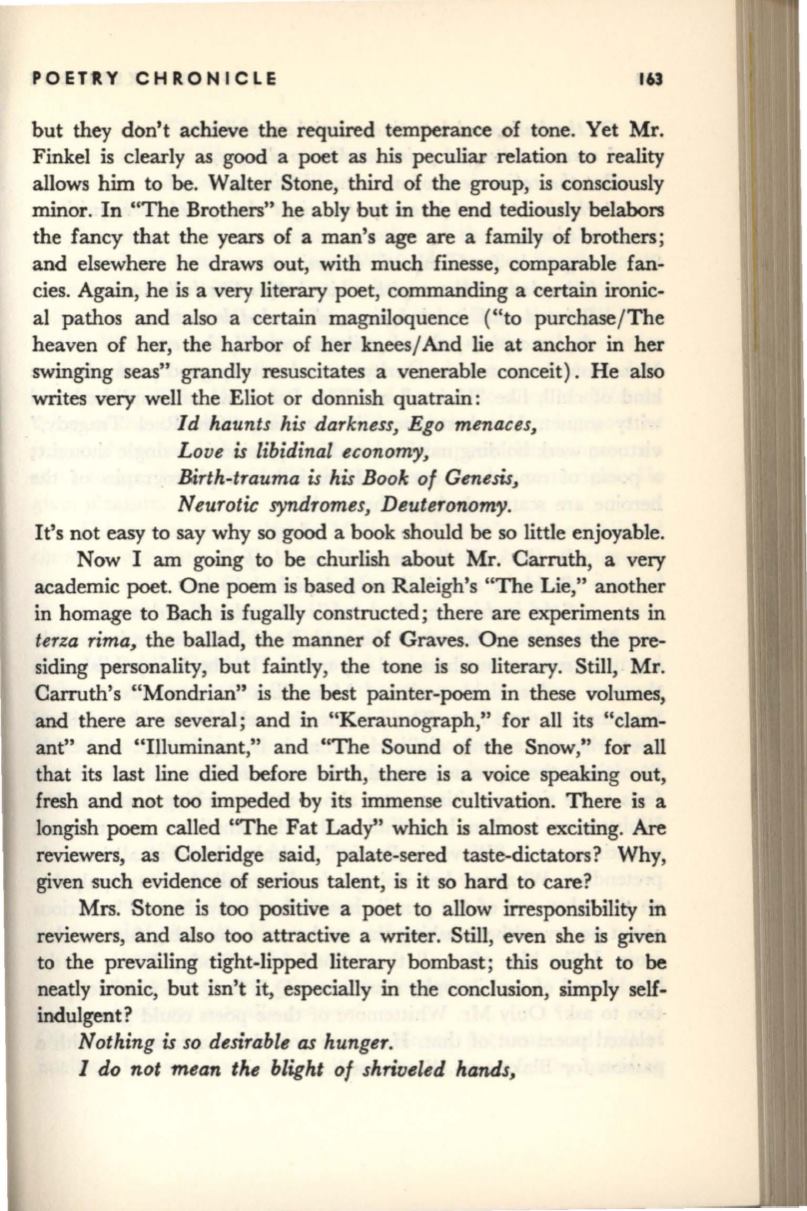
POETRY CHRONICLE
163
but they don't achieve the required temperance of tone. Yet Mr.
Finkel is clearly as good a poet as his peculiar relation to reality
allows him to
be.
Walter Stone, third of the group, is consciously
minor. In "The Brothers" he ably but in the end tediously belabors
the fancy that the years of a man's age are a family of brothers;
and elsewhere he draws out, with much finesse, comparable fan–
cies. Again, he is a very literary poet, commanding a certain ironic–
al pathos and also a certain magniloquence ("to purchase/The
heaven of her, the harbor of her knees/And lie at anchor in her
swinging seas" grandly resuscitates a venerable conceit). He also
writes very well the Eliot or donnish quatrain:
I d haunts his darkness, Ego menaces,
Love is libidinal economy,
Birth-trauma is his Book of Genesis,
Neurotic syndromes, Deuteronomy.
It's not easy to say why so good a book should be so little enjoyable.
Now I am going to be churlish about Mr. Carruth, a very
academic poet. 'One poem is based on Raleigh's "The Lie," another
in homage to Bach is fugally constructed; there are experiments in
terza rima,
the ballad, the manner of Graves. 'One senses the pre–
siding personality, but faintly, the tone is so literary. Still, Mr.
Carruth's "Mondrian" is the best painter-poem in these volumes,
and there are several; and in "Keraunograph," for all its "clam–
ant" and "Illuminant," and "The Sound of the Snow," for all
that its last line died before birth, there is a voice speaking out,
fresh and not too impeded by its immense cultivation. There is a
longish poem called ''The Fat Lady" which
is
almost exciting.
Are
reviewers, as Coleridge said, palate-sered taste-dictators? Why,
given such evidence of serious talent, is it so hard to care?
Mrs. Stone is too positive a poet to allow irresponsibility in
reviewers, and also too attractive a writer. Still, even she is given
to the prevailing tight-lipped literary bombast; this ought to
be
neatly ironic, but isn't it, especially in the conclusion, simply self–
indulgent?
Nothing is so desirable as hunger.
1 do not mean the blight of shriveled hands,


